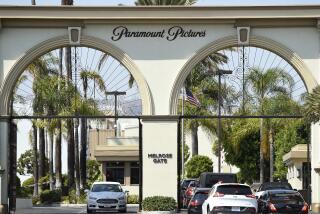Keating Insurer Stops Paying His Legal Bills
- Share via
Citing his insurance carrier’s refusal to pay any more of his legal bills, former Lincoln Savings & Loan owner Charles H. Keating Jr. has told a federal judge that he will not defend himself against civil claims that he defrauded small investors in his company of more than $250 million.
In a letter to U.S. District Judge Richard M. Bilby in Tucson, Keating’s lawyer said that “Mr. Keating will be unable to conduct any defense” in the civil trial, which is scheduled to begin next week with jury selection.
Trial is expected to continue, however, against the main defendants--three accounting firms and a major national law firm--accused in a series of class-action lawsuits of malpractice and of aiding Keating in efforts to defraud investors in American Continental Corp.
Keating’s lawyer, Stephen C. Neal, said in the letter that National Union Fire Insurance Co. of Pittsburgh, Pa. refused to pay Keating’s attorney fees despite a federal court order and a so-called funding agreement that require continued payments. The agreement is an interim payment arrangement between insurance carriers and lawyers for directors and officers.
According to documents in the case, National Union said it had settled all the litigation against other directors and officers of American Continental by paying a total of $5 million, which represents the limits of its policies.
Once policy limits are paid in full, an insurer no longer owes a policyholder any duty to defend him against continuing legal action, asserted R. Gaylord Smith, a San Diego lawyer for New York-based National Union.
Court papers indicated that, through last August, the carrier had also paid nearly $24 million in defense costs, which include attorney fees, filing costs and expert witness fees. The insurer is believed to have paid about $30 million in defense costs before halting payments to Neal’s firm in September.
Neal’s firm, Kirkland & Ellis in Chicago, never signed the funding agreement. Instead, the firm assumed--incorrectly, Smith said--that it succeeded to the contract after taking over for Keating’s prior defense lawyers, who did sign the agreement.
Neal contends that the insurer is wrong on both counts, owing a duty to defend Keating under the policy and the agreement.
The absence of Keating and his lawyers from the complex civil trial is not expected to hurt the efforts of lawyers for American Continental bondholders and minority stockholders.
“The evidence on our side is so overwhelming that we never figured he would appear on a regular basis anyway, and we’ve been planning accordingly,” said Joseph W. Cotchett Jr., the chief trial lawyer for the small investors. “I still have to go ahead and prove the case just as if he were present.”
Most of the small investors were elderly Lincoln customers who contend that they were duped into buying nearly $200 million worth of risky, uninsured American Continental bonds when they had sought insured certificates of deposit. Their money, as well as that of other investors, was lost after Keating’s financial empire collapsed in April, 1989.
Neal continues to represent Keating, though it is unknown what arrangements he has made with any of the nearly two dozen carriers that provided general liability coverage from time to time for directors and officers of American Continental and Lincoln Savings. Lawyers, in federal cases especially, usually can’t stop representing clients without court approval.
Typically, liability policies require that carriers defend, or pay for the defense of, most legal actions brought against directors and officers. One of the exceptions, according to Smith, occurs when insurers pay the limits of the policies.
Last April, National Union agreed to pay $3.75 million to settle claims against most of the directors and officers of American Continental. A second settlement covering Keating’s top aides is pending, and it has exhausted the money available under the policies, Smith said. Lawyers for investors have refused to settle with Keating himself.
Last month, Kirkland & Ellis sued the insurer in a New York state court for non-payment of fees. The lawsuit also seeks fees for defending Keating against state securities fraud charges, of which he was convicted, and two federal indictments.
Smith contends that California law prohibits insurers from covering criminal defense costs. Neal disagrees.
More to Read
Inside the business of entertainment
The Wide Shot brings you news, analysis and insights on everything from streaming wars to production — and what it all means for the future.
You may occasionally receive promotional content from the Los Angeles Times.










